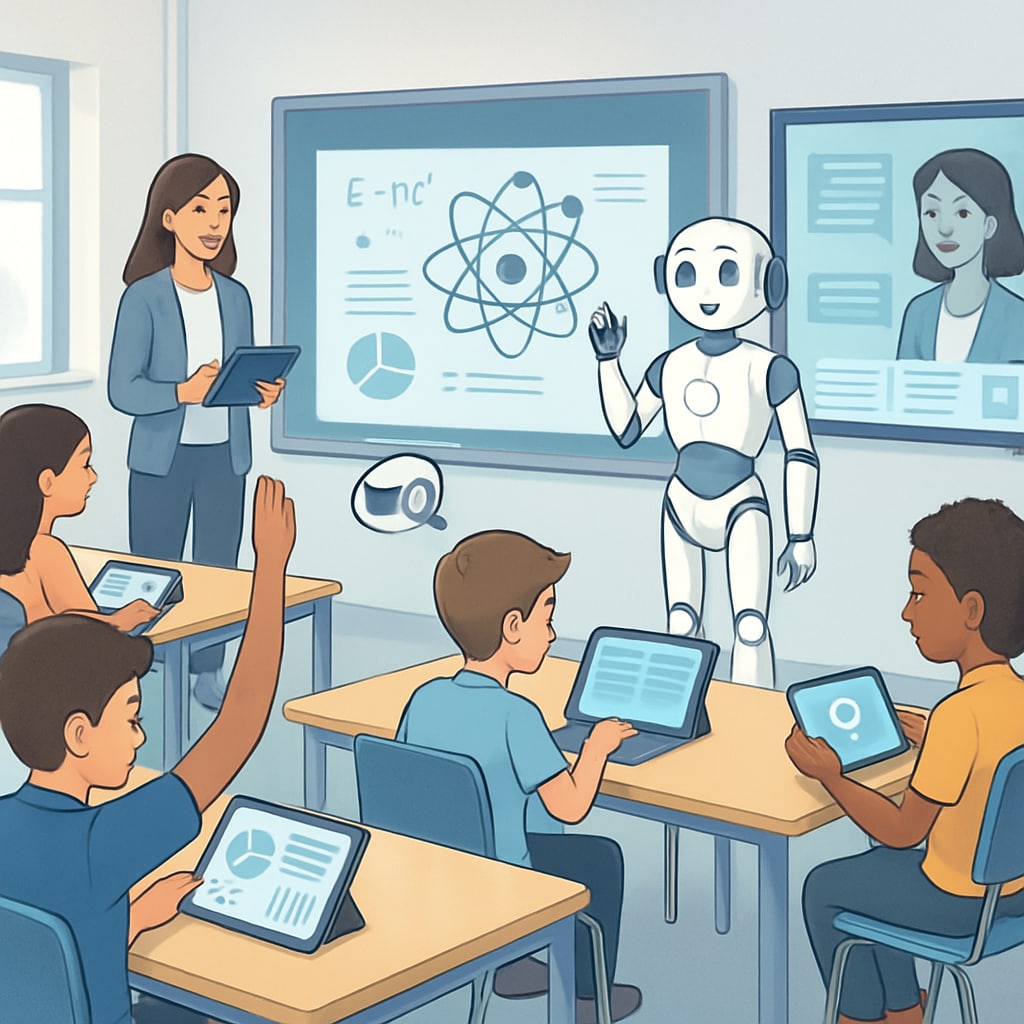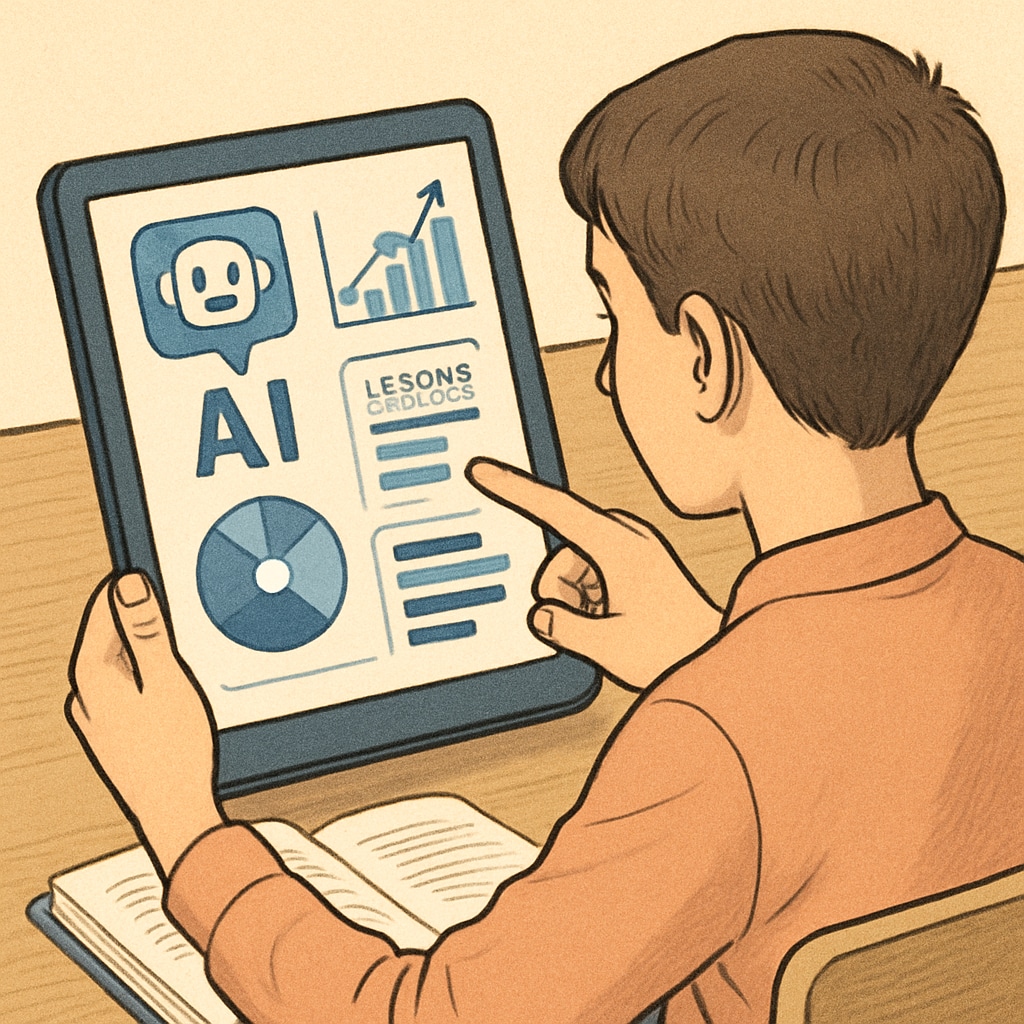Artificial intelligence (AI) is poised to have a transformative impact on K12 education in the next 5-10 years. As schools integrate advanced technologies, AI has the potential to revolutionize traditional teaching methods, enhance personalized learning experiences, and redefine the role of educators. However, this rapid evolution also brings significant challenges, including concerns about equity and the ethical use of technology. In this article, we explore the multifaceted ways AI is reshaping K12 education and the implications for the future of learning.
Transforming Traditional Teaching with AI
AI is disrupting the conventional classroom by introducing adaptive learning systems and intelligent tutoring tools. These innovations allow educators to move beyond one-size-fits-all approaches, tailoring instruction to meet individual student needs. For example, platforms like DreamBox and Carnegie Learning use AI algorithms to analyze student performance in real time and adjust lesson plans accordingly. This enables teachers to identify gaps in understanding and provide targeted support where it’s needed most.
Furthermore, AI-powered systems can assist with administrative tasks, such as grading and attendance tracking, freeing up teachers to focus more on instruction and student engagement. According to a recent study by McKinsey, automating routine tasks could save teachers up to 13 hours per week, enabling them to devote more time to creative and meaningful interactions with students.

Personalized Learning: A New Horizon
One of the most promising applications of AI in education is personalized learning. By leveraging AI, educators can design customized curricula that align with students’ unique strengths and weaknesses. For instance, AI-driven platforms like Khan Academy and Squirrel AI provide tailored content, ensuring that students progress at their own pace while mastering core concepts.
In addition, virtual tutors and chatbots offer round-the-clock support, making learning accessible anytime, anywhere. This flexibility is especially beneficial for students who may struggle in traditional classroom settings or require additional assistance outside of school hours.
As a result, personalized learning powered by AI not only improves academic outcomes but also fosters greater student engagement and motivation. However, educators must remain vigilant to ensure that technology complements, rather than replaces, the human element of teaching.

Redefining the Role of Educators
The integration of AI in classrooms is not about replacing teachers but enhancing their roles. In this new paradigm, educators act as facilitators and mentors, guiding students in critical thinking, creativity, and social-emotional skills—areas where human interaction remains irreplaceable.
Teachers will also need to develop new competencies, such as data literacy, to effectively interpret AI-generated insights and apply them to instruction. Professional development programs will play a critical role in preparing educators for these evolving responsibilities.
Addressing Challenges: Equity and Ethics
While AI holds immense promise, it also raises important questions about access and fairness. For instance, not all schools have equal resources to adopt AI technologies, potentially widening the digital divide between affluent and underserved communities. Policymakers and educators must work together to ensure equitable access to these tools, so that no student is left behind.
Ethical considerations are equally crucial. Issues such as data privacy, algorithmic bias, and the potential misuse of AI in surveillance must be addressed. Establishing clear guidelines and regulations will be essential to building trust and ensuring the responsible use of AI in education.
Despite these challenges, the potential benefits of AI in education are too significant to ignore. As we navigate this transformative era, collaboration among educators, technologists, and policymakers will be key to unlocking the full potential of AI while safeguarding the values of equity and inclusion.
Conclusion: AI is reshaping the landscape of K12 education, offering unprecedented opportunities for personalized learning and innovative teaching methods. However, its successful integration requires careful planning, ethical considerations, and a commitment to equity. By addressing these challenges, we can harness the power of AI to create smarter, more inclusive classrooms for the next generation.


